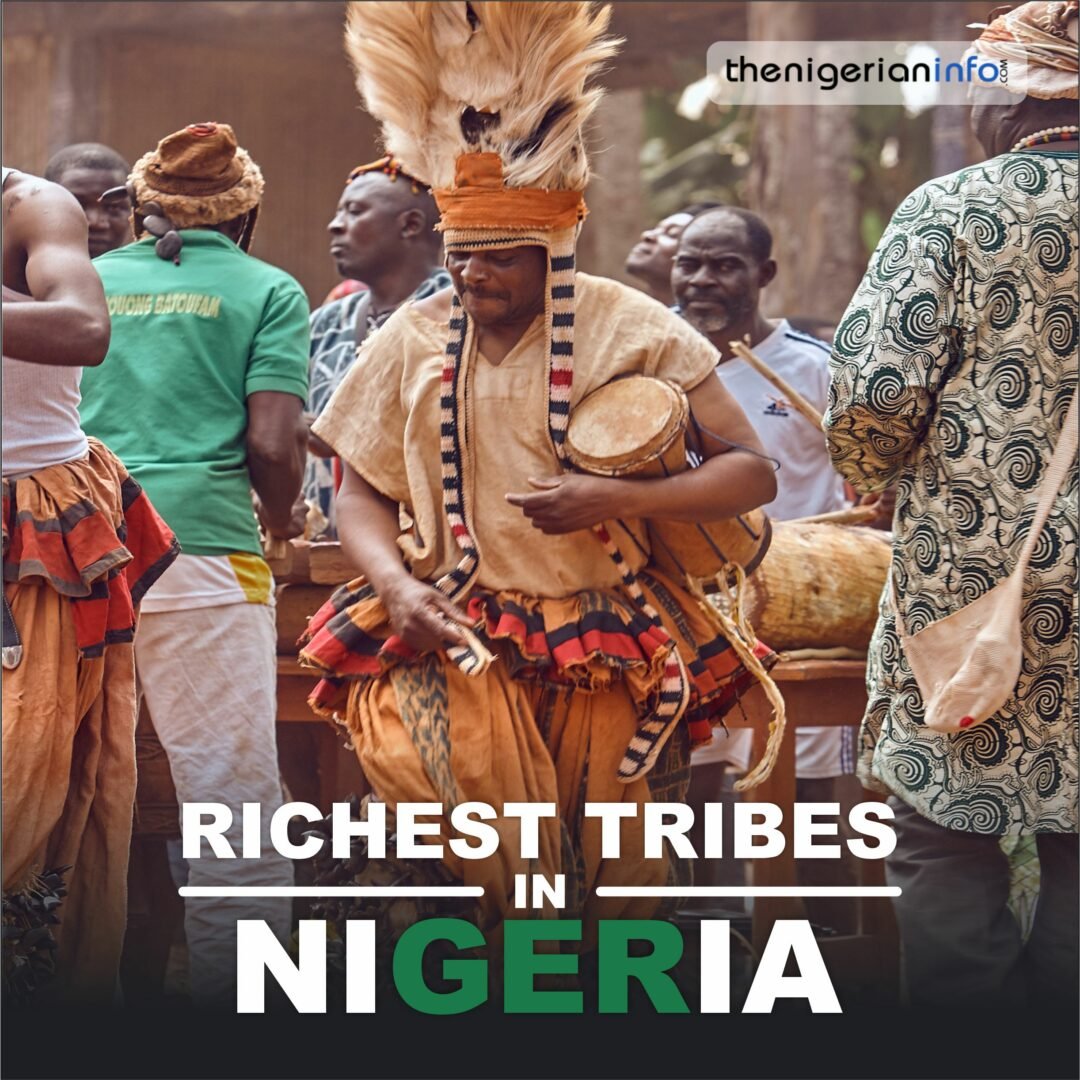In Nigeria, the economic landscape is heavily influenced by various tribes and their economic activities. Understanding the wealth distribution among different tribes is crucial for gaining insights into the economic dynamics of the country. This article aims to provide an overview of the top 10 richest tribes in Nigeria as of 2023.

To determine the richest tribes, several factors were taken into consideration. These factors include the availability of natural resources within their territories, the level of involvement in various business ventures, and the educational and professional achievements of individuals from these tribes. By considering these criteria, a comprehensive assessment of the tribes’ economic prowess was made.
Top 10 Richest Tribes in Nigeria (2023)
1.Igbo Tribe
The Igbo tribe has consistently demonstrated remarkable economic success in Nigeria. Their entrepreneurial spirit has led them to dominate various industries such as trade, manufacturing, and entertainment. Prominent Igbo businessmen, such as Aliko Dangote and Femi Otedola, have made significant contributions to Nigeria’s economy. Read Top 10 Richest Pastors In Africa
2. Yoruba Tribe
The Yoruba tribe boasts a rich economic heritage, with a strong presence in sectors such as banking, telecommunications, and media. They have produced successful entrepreneurs like Mike Adenuga and Folorunso Alakija, who have played crucial roles in shaping the Nigerian economy.
3. Hausa Tribe
The Hausa tribe’s economic significance lies in their involvement in sectors such as agriculture, textiles, and real estate. Their trading activities across West Africa have contributed to their wealth and influence. Prominent Hausa businessmen, including Aliko Dangote and Abdul Samad Rabiu, have made substantial contributions to Nigeria’s economy.
4. Fulani Tribe
The Fulani tribe’s wealth stems from their involvement in agriculture, livestock farming, and the oil industry. They have made significant investments in large-scale commercial farming and have also played a vital role in the oil and gas sector. Individuals such as Mohammed Indimi and Sayyu Dantata have played major roles in the Nigerian economy.
5. Edo Tribe
The Edo tribe’s economic prowess lies in their involvement in sectors such as oil and gas, banking, and real estate. Their access to resources, particularly in the Niger Delta region, has contributed to their economic success. Notable Edo entrepreneurs, such as Tony Elumelu and Gabriel Igbinedion, have made substantial contributions to Nigeria’s economy.
6. Isoko Tribe
The Isoko tribe’s wealth is derived from their involvement in the oil and gas sector, as well as agriculture and trading. Their strategic location in the Niger Delta region has provided them with access to lucrative opportunities. Notable Isoko individuals, including Benedict Peters and Tonye Cole, have made significant contributions to Nigeria’s economy.
7. Ijaw Tribe
The Ijaw tribe’s economic significance lies in their involvement in the oil and gas industry. They have played a crucial role in the exploration, production, and distribution of petroleum resources in Nigeria. Notable Ijaw entrepreneurs, such as Diezani Alison-Madueke and Timi Alaibe, have made substantial contributions to the Nigerian economy.
8. Tiv Tribe
The Tiv tribe’s wealth is primarily derived from agriculture, with a focus on crop farming and livestock rearing. Their expertise in agricultural practices has contributed to their economic success. Prominent Tiv individuals, such as David Iornem and Mike Mku, have made significant contributions to Nigeria’s economy.
Livestock rearing is another important economic activity among the Tiv tribe. They rear cattle, goats, sheep, and poultry, which provides a source of income and sustenance for their communities. The Tiv people are known for their skill in animal husbandry, and their livestock contributes to the local economy through meat and dairy production. Read also Top 10 Richest Men in Bauchi State & Net Worth
9. Kanuri Tribe
The Kanuri tribe’s economic prowess lies in their involvement in sectors such as agriculture, livestock farming, and trade. They have a strong presence in the northeast region of Nigeria, contributing to the economic development of the area. Notable Kanuri entrepreneurs, including Mohammed Indimi and Aminu Dantata, have made substantial contributions to Nigeria’s economy.
10. Ibibio Tribe
The Ibibio tribe’s wealth is derived from their involvement in sectors such as oil and gas, agriculture, and commerce. They have significant investments in the oil and gas industry, contributing to their economic prosperity. Notable Ibibio individuals, including Udom Emmanuel and Onofiok Luke, have made significant contributions to Nigeria’s economy.
Conclusion
Understanding the economic landscape of different tribes in Nigeria is essential for comprehending the country’s overall economic dynamics. The top 10 richest tribes in Nigeria as of 2023 include the Igbo, Yoruba, Hausa, Fulani, Edo, Isoko, Ijaw, Tiv, Kanuri, and Ibibio tribes. Each of these tribes has made significant contributions to Nigeria’s economy through their involvement in various sectors such as oil and gas, agriculture, banking, telecommunications, and more.
By recognizing the economic prowess of these tribes, it is crucial to promote collaboration and diversity within Nigeria’s economy. The success stories of prominent individuals from these tribes serve as inspiration and motivation for future generations. Additionally, further research and exploration into Nigeria’s economic landscape will provide valuable insights into the development and growth of the country.